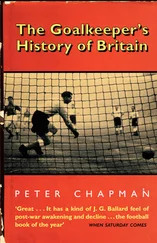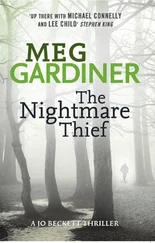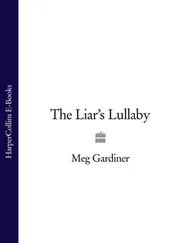On Thursday, 27 October 1932 the marchers arrived at Hyde Park, their ranks of some 1,500 swollen by around 100,000 Londoners, and pressed towards seven carts that had been set up as a platform. They were met by 2,600 police, including 136 on horseback and 758 special constables who lacked the training or discipline of the regular force, and whose presence, in the words of the Police Review , was ‘calculated to cause trouble rather than avoid it … the special is an irritant rather than an antiseptic … the less they are seen and used [on hunger marches and demonstrations] the better for everyone’. The ‘specials’, goaded by the crowd (factory girls in Borough in South London hardly helped, screaming, ‘Kiss me, Sergeant!’), attacked the marchers with batons, the mounted police charged, and the marchers retaliated, tearing up railings and breaking branches off the trees. As dusk fell nineteen police and fifty-eight demonstrators were reported to have been injured, while fourteen people had been arrested. There were similar scenes in Trafalgar Square on Sunday, 30 October, when Wal Hannington appealed, ‘Let the working class in uniform and out of uniform stand together in defence of their conditions,’ and leaflets were stuck on railings urging: ‘Policemen! Defeat your own pay cuts by supporting Tuesday’s demonstration against the Economies.’
But when Tuesday came, Hannington had been arrested, charged with ‘attempting to cause disaffection among members of the Metropolitan Police’, and detained in custody. Declining the offer of a Labour MP to sponsor them, since the Labour Party had listed the NUWM as a proscribed organisation in 1930, a fifty-strong deputation of the marchers collected their petition calling for the abolition of the Means Test and of the Anomalies Act, the restoration of benefit cuts and withdrawal of the new economy measures, with, it was claimed, a million signatures (‘bigger than the Chartists’ petition’) from Charing Cross left-luggage office, intending to march from Trafalgar Square down Whitehall to present it at the bar of the House of Commons, as was the ancient right of citizens. However, the police clanged shut the gates, leaving the deputation and their petition inside and a milling crowd of supporters outside.
Those supporters marching towards Parliament — which was illegal, since processions were not allowed within a mile of the Palace of Westminster — were met by 3,174 policemen, including 2,000 on horses — some borrowed from the army for the occasion — detailed to defend Parliament. Fighting broke out which continued until midnight, as far away as the Edgware Road and across Westminster Bridge. Official figures listed twelve police and thirty-two demonstrators injured, and forty-two arrests — though only two of those were marchers. The petition was never presented: it was returned to the left-luggage office, and eventually the marchers set off back to their homes all over Britain in trains, their fares negotiated at greatly reduced rates paid for by the money they had collected en route.
Hannington was sentenced to three months in prison — his fifth term in ten years. Sid Elias, the leader of the deputation to hand the petition in to Parliament, was charged with having stirred the hunger marchers to acts of disorder in a letter written to Hannington (who never received it) while he was in Russia, which allowed the right-wing press to raise again the spectre of a ‘Moscow connection’, ‘Russian dupes’ and ‘red gold’ backing the hunger marches, and received the maximum sentence of two years. Five days after the trial Emrhys Llewellyn, the NUWM’s Secretary and Treasurer (who had stashed the petition in the left-luggage office) and the seventy-six-year-old veteran trade unionist, leader of the 1889 Dock Strike, Tom Mann, were also arrested. Both refused to be bound over to keep the peace. Mann addressed the court: ‘If I am to be tied, if my mouth is to be closed, if I am not to participate in voicing the grievances of those who are suffering, while the incompetency of those responsible cannot find work for them, and is knocking down their miserable standards still lower, then whatever the consequence may be … I will not give an undertaking not to be identified with the further organisation of mass demonstrations and the ventilation of the troubles of the unemployed and of the workers generally.’ He went to prison for two months, as did Llewellyn.
The politically engaged writers Storm Jameson, Amabel Williams-Ellis (who was the sister of John Strachey) and Vera Brittain wrote a letter to Time and Tide in protest:
The most important point about the recent demonstrations and hunger marches is this. Other minorities have channels for airing grievances. The unemployed who have the most serious complaint are the least articulate. Their way of saying what they want to say is taken from them if it is made impossible for them to demonstrate or to hold meetings or to state their case directly whether it be to Parliament or to the local Public Assistance Committee. Can it be that the Government are so anxious to silence them because it would rather not hear too much of what it feels like to try to feed a child on two shillings a week? It is with considerable disquiet that we see a National Government attempting to suppress the views of any body of its subjects and especially that section which has the fewest opportunities of making itself heard. The unemployed are muzzled as they have no other means of publicity for their grievances.
Just over a year later, in the bitter cold of January 1934, the unemployed were on the march again. The Labour Party, still hostile to any demands for united action with the Communists, despite the fact that Hitler had come to power in Germany in January 1933 and both the Communist and the Socialist Internationals had called for united working-class action against fascism, continued to class the NUWM as ‘a mere instrument of the British Communist Party’. ‘One of our troubles was that the Labour Party were opposed to our earlier marches,’ recalled Harry McShane. ‘The woman organiser of the Labour Party used to go ahead of us and advise people not to have anything to do with us. The Labour Party were opposed to anything, opposed to the Communist Party mainly. It’s quite true to say that Hannington and myself were members of the Communist Party. And most of the leading elements were members of the Communist Party, not all of them … they did a lot o’ that and it did a lot o’ harm to us. But later on we managed to get Attlee [Clement Attlee, leader of the Labour Party from 1935] to agree to support a March and speak with us in Hyde Park … and we got the assistance of Aneurin Bevan, who was a tremendously fine person … He was probably the best speaker I’ve ever heard. It was on the 1934 March that I first met him.’
Equally, the TUC had refused to involve the NUWM in a rally it had organised in London in February 1933, the sole large demonstration sanctioned by the official labour movement on the issue of unemployment throughout the 1930s. ‘The ILP [Independent Labour Party] seemed to do strange things at the time,’ mused McShane. ‘Sometimes they would support us. They tried to form separate Unemployed Committees, separate entirely from us. They and the … TUC were doing the same thing, forming rival bodies.’ However, despite the fact that the official Labour Party was ‘awfy absent, awfy absent’, in the words of Guy Bolton, an unemployed Lanarkshire miner, local Labour Party workers, less concerned with internecine wrangles and more sympathetic to the plight of the individual unemployed, would often turn out to offer support in the form of food, accommodation or entertainment. Hugh Duffy travelled from Scotland ‘on the chuck wagon in advance o’ the marchers. I chalked the streets and shouted through the loudspeaker, “The Hunger Marchers are comin’! They’ll be here at six o’clock! Turn out and support their cause!” And then the lads came marchin’ in.’
Читать дальше












